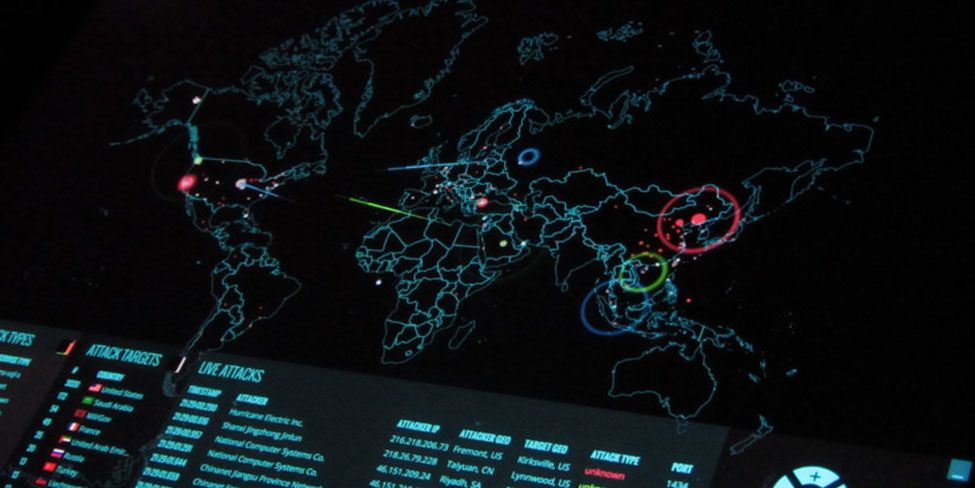What Businesses are Most & Least Vulnerable in a Cyber-Attack?
With the pervasiveness of technology today, there are hardly any businesses or industries that aren’t vulnerable to cyber attack. However, since some industries rely on online technology more than others, those industries are more vulnerable. These “most vulnerable” industries should take extra steps to protect the sensitive data of their business and their clients.
Any kind of sensitive information – no matter how mundane – could be stolen by hackers. Hackers are normally after a quick, substantial, financial gain. When they gain access to sensitive information, they are usually looking to hold that information for ransom from the company or individual it pertains to, or they are looking to sell that information on the dark web.
Therefore, industries that are most vulnerable are those working closely with people’s daily lives and personal information. Below are some of the most vulnerable industries for data breach.
Most Vulnerable – Financial Institutions and Banks
The most obvious – and most common – victims of cyber attacks are banks and other financial institutions. With credit card and bank account numbers up for grabs, successful attacks can be catastrophic for the livelihoods of both the institutions and their clients.
Most Vulnerable – Hospitals
Like financial institutions, hospitals hold extremely sensitive information for all its clients, information like: medical histories, surgery, blood and organ information, and prescription records among other things.
Unlike banks, hospitals seldom have the budgets available to maintain the highest levels of cyber security, making them particularly vulnerable to attack.
Very Vulnerable – Schools and Universities
Unlike banks and hospitals, it isn’t the types of sensitive information that make schools common targets for hackers; it is the amount of information that they share publicly. Often in an attempt at transparency with its student body and others, schools keep email addresses, physical addresses and other information about its faculty and staff publicly listed online. With hackers, information is information. No matter how mundane, they will take what they can when they can to use or sell at a later time.
Very Vulnerable – Retailers
Retailer security breaches are becoming all too common. Retailers collect data through a variety of sources, from point of sale machines to tap-to-pay terminals to beacon terminals. Securing customer’s personal information can be quite challenging for retailers. The massive amount of data to protect across multiple endpoints is no easy task.
Vulnerable – Government
Local, state and federal governments are especially vulnerable due to the high employment turnover in these offices. Government offices often employ their own IT departments, with members who might be in another job within the month. Not to say that these employees are going to intentionally jeopardize information once they start a new position, but the fact remains that government organizations struggle with malware infections, network security and software patching.
Therefore, it’s especially important for government agencies to hire independent, outside experts who can assess their security problems and recommend solutions.
Less Vulnerable – Media
In the increasingly volatile political climate, media outlets and websites are in danger of cyber-attacks. Most commonly, media organizations face phishing and malware schemes, and most media sites are targets for political purposes, not attacks on sensitive personal information. Media outlets should prepare themselves for cyber attacks including SQL injection, ransomware and hacking of mobile sites and social media channels.
Less Vulnerable – Manufacturing
While this may be the most surprising entry on the list, manufacturing companies are often the least prepared for cyber attack and hackers know this. While personal health and financial information may not be in jeopardy, when a manufacturer is jeopardized hackers can hold a lot hostage – shipping plans, payment records, production schedules – a lot more is at stake than you might realize.
Least Vulnerable – Energy
Take note, we say “least vulnerable,” not “invulnerable.” Infrastructure like utilities, refineries, military defense systems, water treatment plants and other facilities are still very vulnerable to cyber-attacks. Many of these organizations have replaced analog controls with digital systems, making them more efficient. However their control system networks are vulnerable to attackers looking to steal sensitive information, disrupt processes and damage equipment.
Clearly a wide range of industries is vulnerable to cyber crime in an increasingly digital world. Your business may be handling information you may’ve never considered at risk. If you’re business doesn’t have anyone handling I.T. matters, you need to make changes now. If you do have I.T. specialists on your payroll, but still have questions or concerns about your customers’ data security, contact Business World at www.businessworld-usa.com or by calling 501-214-5482.


